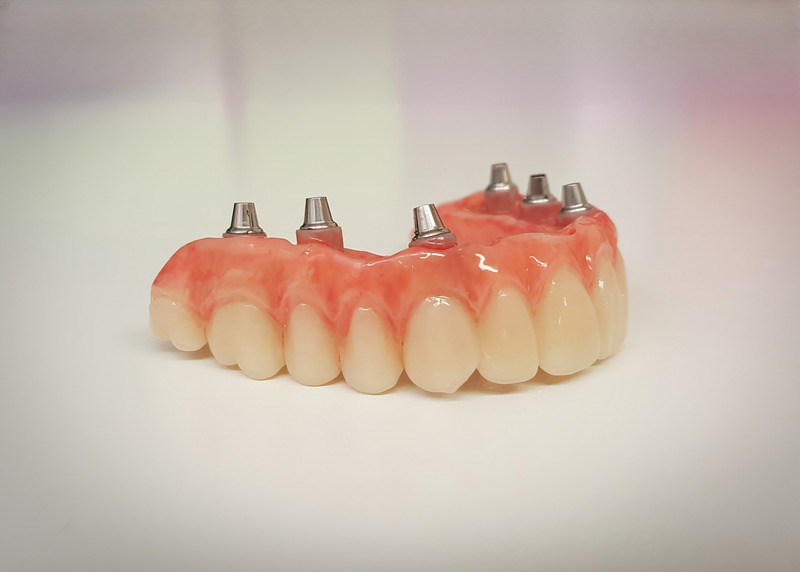
What Are The Biocompatibility Advantages Of Zirconia Tooth Implants?
Zirconia tooth implants are becoming popular due to several factors. They are durable, maintaining their quality for a long time. Aesthetically, zirconia looks natural, closely resembling real teeth. Most importantly, they are biocompatible, meaning they are less likely to cause allergic reactions or be rejected by the body. These implants also resist corrosion and interact well with gum tissue, promoting healthier gums. Additionally, zirconia implants are metal-free, which is preferable for people avoiding metal in their bodies for personal or health reasons. Overall, they offer a reliable and attractive option for tooth replacement.
Why Biocompatibility Matters
First off, let’s talk about biocompatibility. This fancy term essentially means how well a material works with your body. For tooth implants, this is crucial. A biocompatible material will more likely integrate well without causing adverse reactions. This ensures that the implant not only functions correctly but also lasts longer.
A New Horizon in Dental Implants
Now, if you aren’t familiar, a zirconia tooth implant is a type of dental implant made from a ceramic material known as zirconium dioxide. It’s prized for its strength and aesthetic appeal, closely resembling natural teeth in color and texture.
Metal implants, typically titanium, have been the standard for years. While effective, they aren’t without drawbacks. Some patients report allergies, sensitivities, or even aesthetic issues due to the metallic color showing through the gums. Zirconia offers a metal-free alternative that can alleviate these concerns.
Strength and Durability
Zirconia is incredibly strong and durable, making it an excellent choice for dental implants. This material can withstand daily wear and tear, including the pressures of chewing, without deteriorating. Its superior strength minimizes the risk of fractures, making it a reliable long-term option.
Resistance to Corrosion
Unlike metal, zirconia doesn’t corrode. This is particularly important in the moist environment of the mouth. Corrosion can lead to the release of ions that could affect surrounding tissues. By eliminating this risk, zirconia promotes a healthier oral environment.
Aesthetic Benefits
For many, the goal of a tooth implant is not only functional but also cosmetic. Zirconia implants match the color and translucency of natural teeth more closely than metal, leading to a more natural-looking smile.
With metal implants, there’s a risk that the metallic color may tinge on the gums, leading to an unnatural appearance. Since zirconia is naturally white, this issue is eliminated, providing a seamless blend with natural teeth.
Reduced Risk of Allergic Reactions
Allergies to metal are rare but significant for those who experience them. Zirconia tooth implants offer a hypoallergenic alternative, making them suitable for patients with known metal sensitivities.
Zirconia implants are made from a single piece, mimicking the structure of a natural tooth root more closely than their metal counterparts. This design can provide better stability and integration with jawbone tissue.
Enhanced Oral Hygiene
Maintaining gum health is essential, especially when dealing with implants. Zirconia’s smooth surface resists plaque formation better than metal, supporting better oral hygiene and reducing the risk of gum disease.
Easier Cleaning
Due to its non-porous nature, zirconia implants are easier to clean. Plaque and bacteria have fewer places to hide, helping keep your mouth healthier with less effort.
Compatibility with PRF Dental Treatment
When considering treatments that combine implants with regenerative techniques like PRF dental treatment, zirconia’s biocompatibility stands out. This treatment promotes healing and integration with tissue, potentially enhanced when combined with a biocompatible material.
Long-Term Benefits of Choosing Zirconia
The initial investment in zirconia may be higher than metal alternatives. However, the potential for reduced complications and maintenance costs may result in savings over time. Additionally, zirconia’s longevity means fewer replacements, offering more value in the long run.
If you’re looking for restorative options like New Jersey dental bridges, zirconia’s qualities make it a solid choice. The aesthetic and functional benefits make it an ideal material, ensuring bridges that are durable and visually appealing.
Environmental Impact
While it’s essential to focus on personal health, the ecological impact of dental materials is also worth considering. Zirconia is an inert material, and its production process is considered to have less environmental impact compared to some metal alternatives.
Metal implants require significant resource extraction, often leading to environmental degradation. Choosing zirconia can be a step towards more sustainable dental solutions.
Patient Comfort
From the insertion process to the day-to-day wear, patients report feeling more comfortable with zirconia implants. The material doesn’t conduct heat or cold, leading to less sensitivity compared to metals which can react to temperature changes.
Some patients find that zirconia implants offer quicker healing. This might be due to better integration with jawbone and gum tissue, supported by the material’s biocompatibility.
Final Thoughts
In summary, zirconia tooth implants bring the promise of a biocompatible, durable, and aesthetically pleasing solution to modern dental care. With their hypoallergenic properties, natural appearance, and robust durability, they are increasingly becoming the choice for those prioritizing both health and appearance. Whether you’re in for a single implant or considering PRF dental treatment, zirconia’s benefits are clear. It’s an investment in not just your dental health but comfort and confidence.



